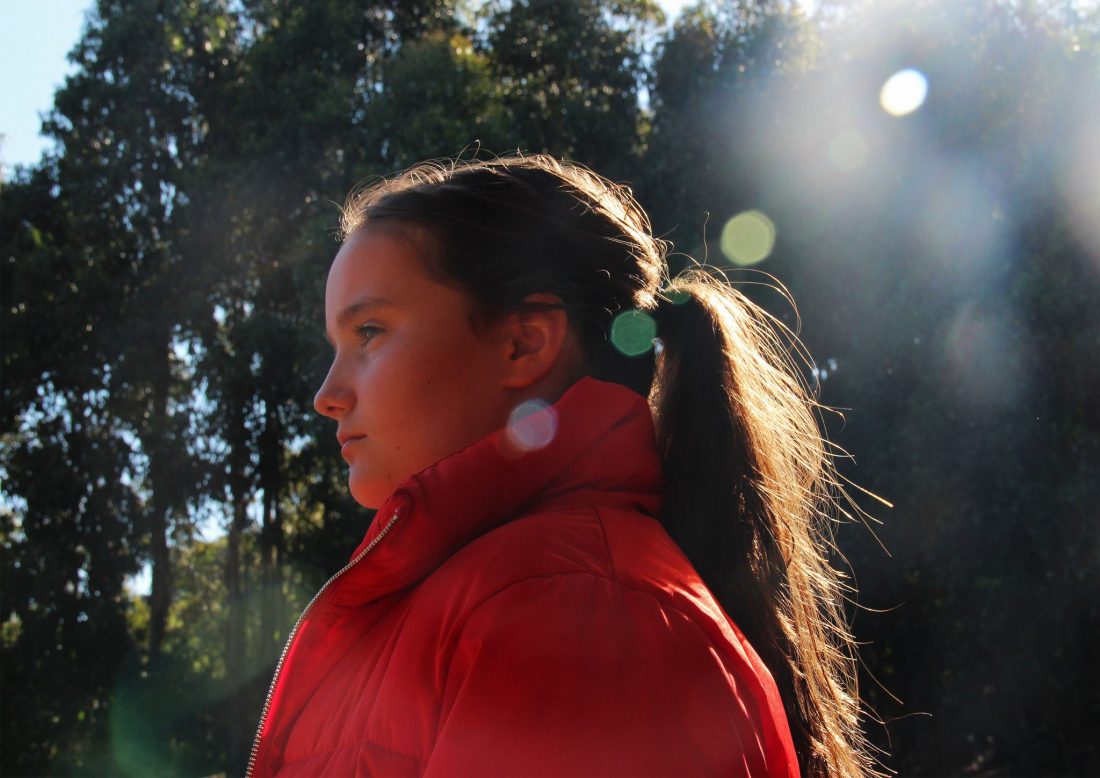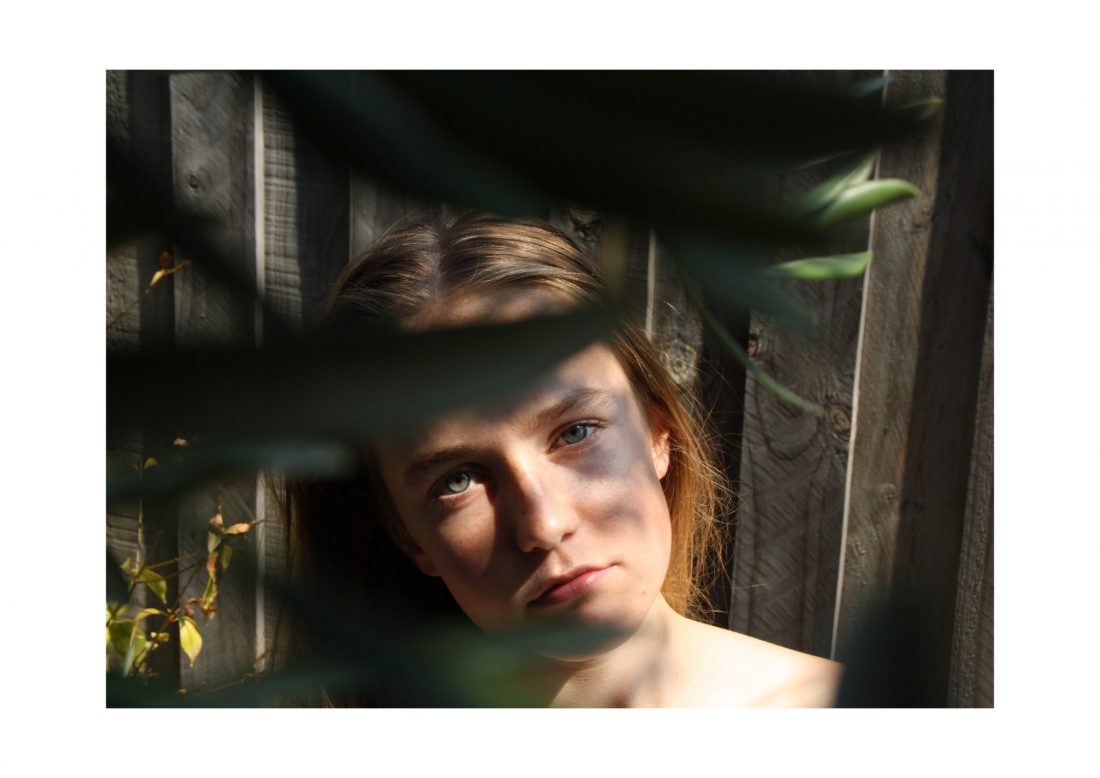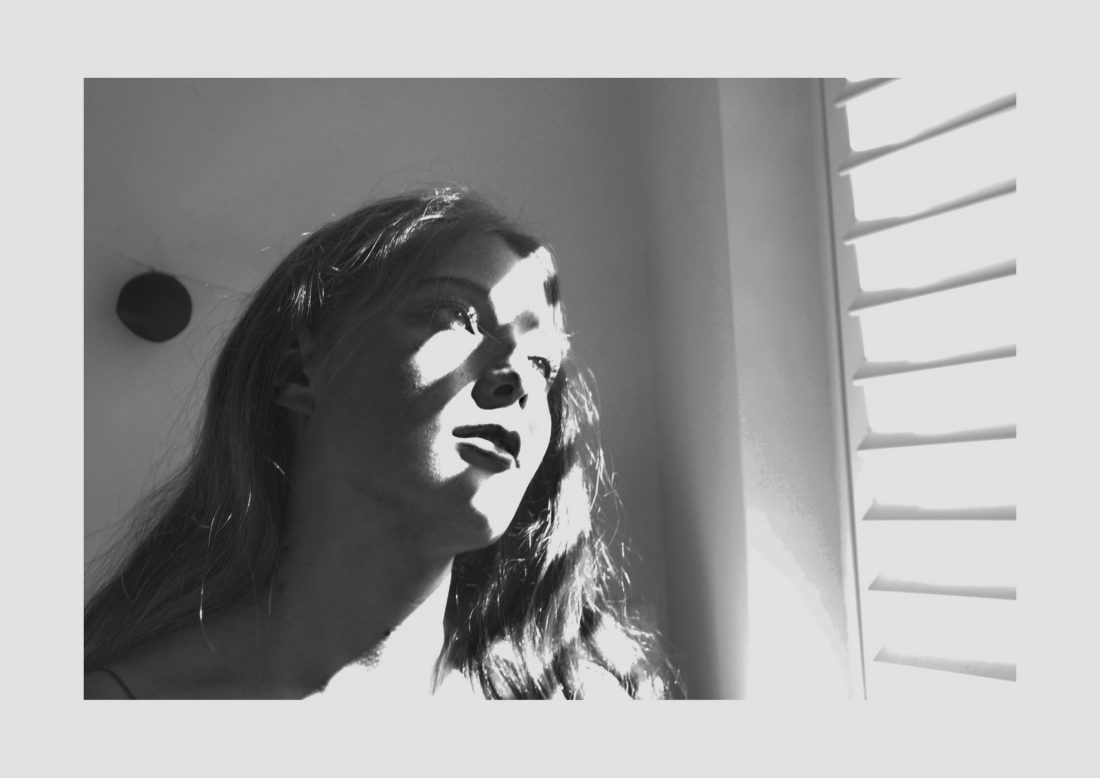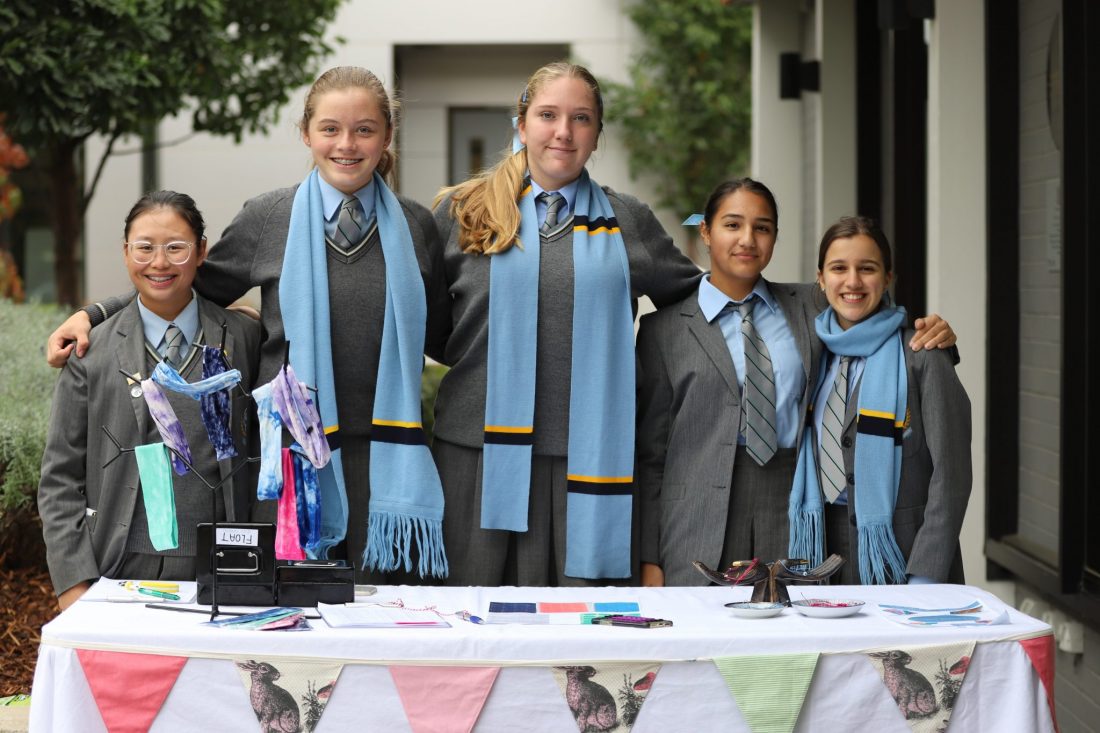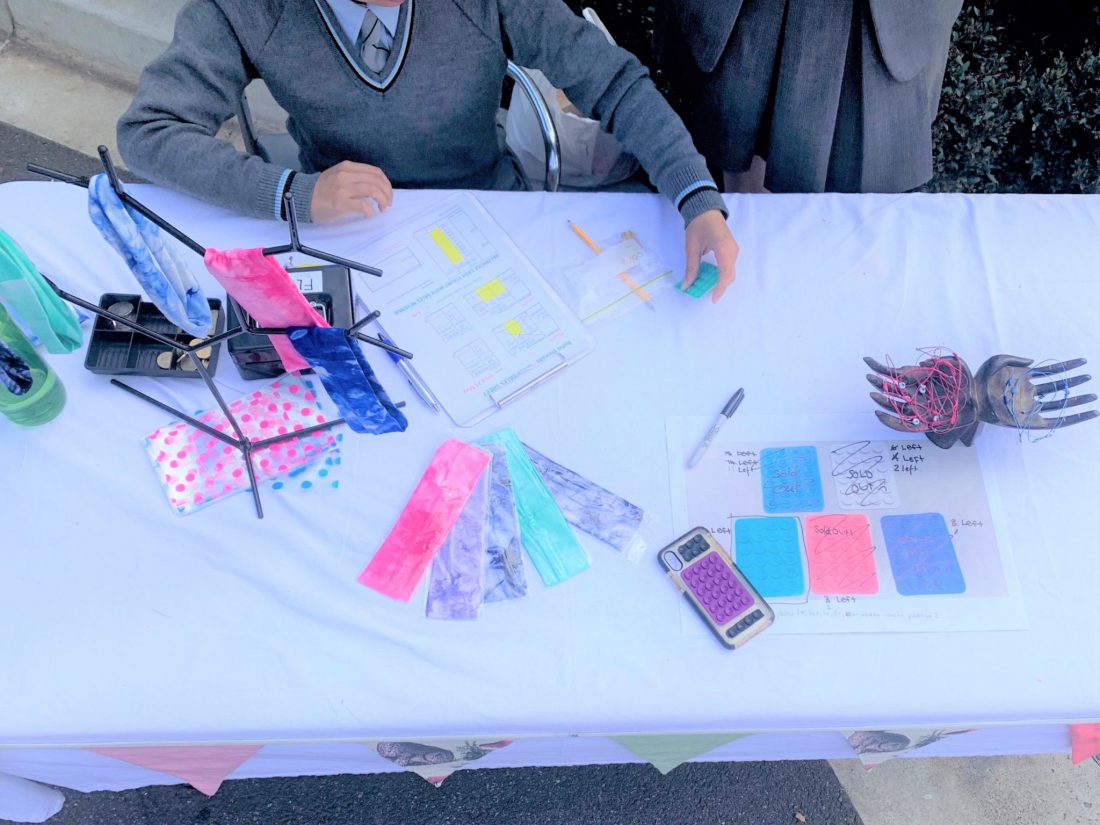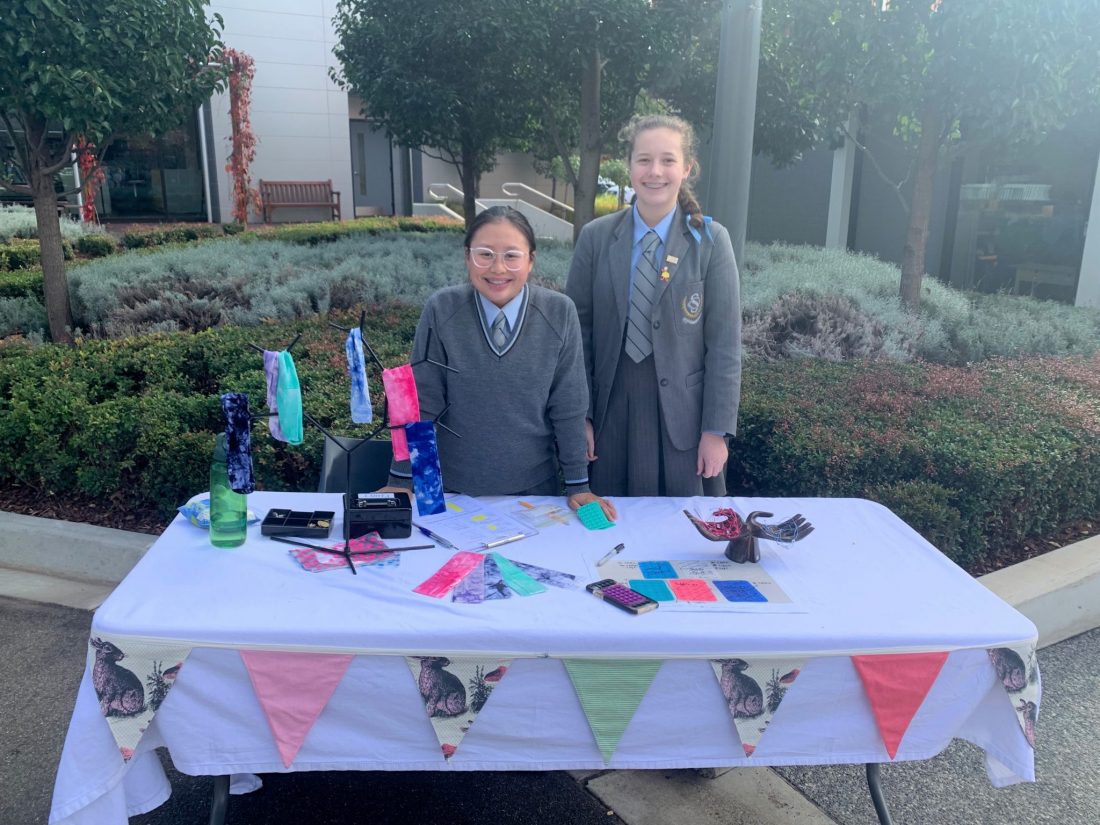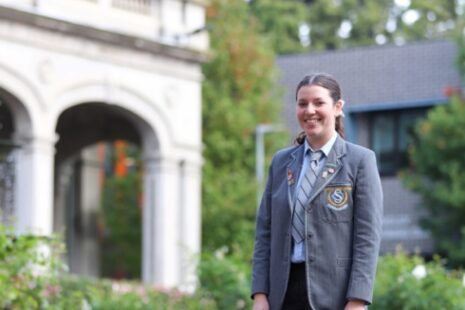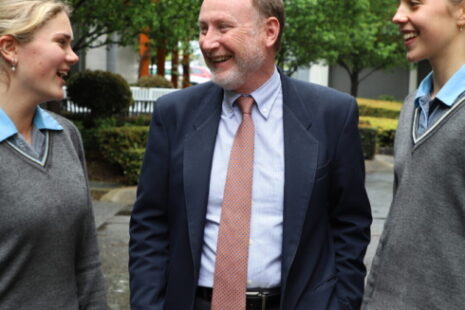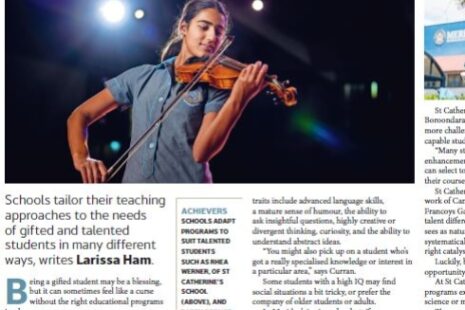New Elective Program Promotes Engagement and Occupational Learning at St Catherine’s School
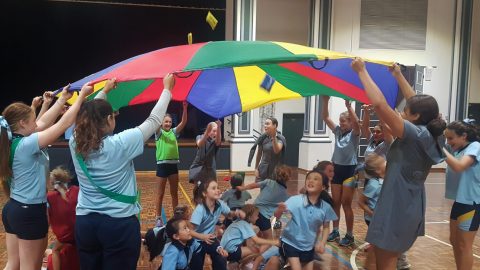
The word ‘engagement’ is one of the most misunderstood terms in education. It is not, as many believe, simply the absence of boredom, where we are stimulated or entertained by interesting content. If this was the case, then a classroom where the teacher kept the students entertained or on task for a lesson through a variety of hooks and stimulation activities could be considered an engaging one.
While the holding of attention is vital, real student engagement occurs when students choose to invest, and then reinvest, in their own learning due to the personal meaning they are deriving from it. To do this, students need to see the value in the learning beyond superficial elements such as grades. The learning needs to have intrinsic, rather than only extrinsic value to students. In other words, it needs to be authentic.
It is exactly the same problem that American philosopher John Dewey identified over a century ago when he argued that to offer a curriculum to students removed from their ‘present interests and concerns…was treacherous’.
To rectify this, in addition to the ‘knowing and doing’ (skills and knowledge) that underpin traditional curriculums, Dewey emphasised a third element, ‘being’, which is the occupational elements of a discipline. This is where students are provided with the conditions where they can invest in their subject occupationally. For example, they do not ‘study’ Art and Design rather, they are artists and designers. They do not ‘study’ a Language, but rather are bilingual readers, writers and speakers.
The introduction of a new Year 9 elective program at St Catherine’s School this year has given teachers a chance to create a range of subjects that encapsulate this idea of occupational learning and genuine engagement. It was my pleasure to sit down with my colleagues recently to discuss their thinking behind their curriculum design and how they selected their material for the specific needs of a Year 9 student. Below were the common threads that emerged.
Theoretical Extension and Building Writing Capacity
All teachers in the Year 9 elective program have extensive VCE experience and are acutely aware of the need to upskill middle-years students in the conceptual and theoretical vocabulary of their subject in preparation for their senior years. The Language Arts subjects also see Year 9 as the year in which the foundations for strong senior writing are established through revising, drafting and increasing the complexity of written work. In the Literature elective, this means students are introduced to an analysis of text through an ideological and values-based lens, in addition to the traditional character and thematic study they are accustomed to from junior English. Similarly, in Year 9 French, students take a significant step up from Year 8 by consolidating their knowledge and making connections between grammatical concepts through extended writing pieces that will prepare them for the complexity of VCE Languages. In the Philosophy and Critical Thinking elective, students learned the basic elements of argument structure and participated in a Socratic Seminar before completing an inquiry project on a contemporary issue of their choice, learning how to synthesise research, cite correctly and write with the clarity and coherence required of senior students.
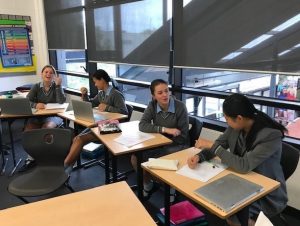
Occupational and Authentic Learning: Student Agency and Choice
Each subject teacher spoke of their desire for the students to participate in activities that were occupational in the sense that they mirrored the way each discipline is practiced outside of the classroom. Students are given a strong degree of autonomy and choice within assessments, which allowed for much greater personal investment along with reducing student reliance on teacher direction.
In the Drama elective, students wrote their own ensemble production based around the concept of ‘Get Real’ as a performance for the St Catherine’s School community. They drew on elements from contemporary life such as fake news, Instagram and political promises to satirise the modern world as well as learn the practical elements of creating and organising a production. In the Digital Media elective, the students created a series of original portrait photographs in response to a specific purpose such as engagement, entertainment, or creation of a visual style. The level of quality in the work produced by students at Year 9 level in both subjects was excellent.
In the Sports Coaching elective, students first learned the fundamentals of coaching theory (such as direct instruction and game sense) before designing their own coaching sessions and implementing them with classes from the Junior School.
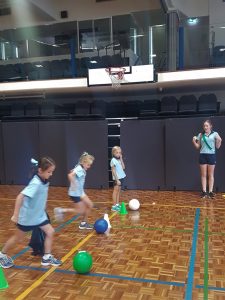
In the ever popular Enterprise and Entrepreneurship course, students apply the key elements of business theory (such as structure, finance, marketing, manufacturing, sourcing, and selling) by creating their own business.
Contemporary Relevance
Alongside the authenticity of its learning experiences and the focus on creating disciplinary competency, the real strength of our new elective program is in the relevance of the curriculum to contemporary life. In a world where ‘Gen Z’ is regularly maligned for lacking ‘life skills’, the Financial Literacy elective bridges the link between the study of finance and life application. Students begin the course by creating a CV to apply for a job, then complete a job application and mock interview. After this, they worked in teams on a ‘Spreading the Knowledge’ campaign, using digital technology to inform 15-25 year-olds about superannuation choices.
Following this, the large scale ‘Survival in the City’ project assigned students a job and a suburb to live. From this, students had to research a viable rental option, create online grocery shopping plans, seek a phone, source a health insurance plan, and finally use the personal loan calculator to consider the possibility of a car purchase.
Complementing this financial focus is the Economics and Politics elective where the teacher used the opportunity of a Budget and Election in early 2019 to teach students the foundations of economic theory (such as supply and demand). Using the Melbourne residential property market as their ‘textbook’, students mapped the characteristics of the stock and property market using real data and examples. In time for the election, students completed a ‘mock election’, including tallying voting slips modelled on the official version of our local electorate in order to increase their understanding of Australia’s preference system.
Learning What Matters
Given the opportunities to design electives with only Year 9 students in mind for the first time, the teachers developed curriculum that emphasised disciplinary competency and encouraged independence, all without the pressures of high-stakes testing. The Year 9 elective program at St Catherine’s is an excellent example of the kind of occupational learning that leads to genuine student engagement and the development of the skills and knowledge our students need to negotiate the world around them. The fact that all subjects have moved beyond the abstraction of textbooks and worksheets makes the learning really matter, creating possibilities for student investment.



